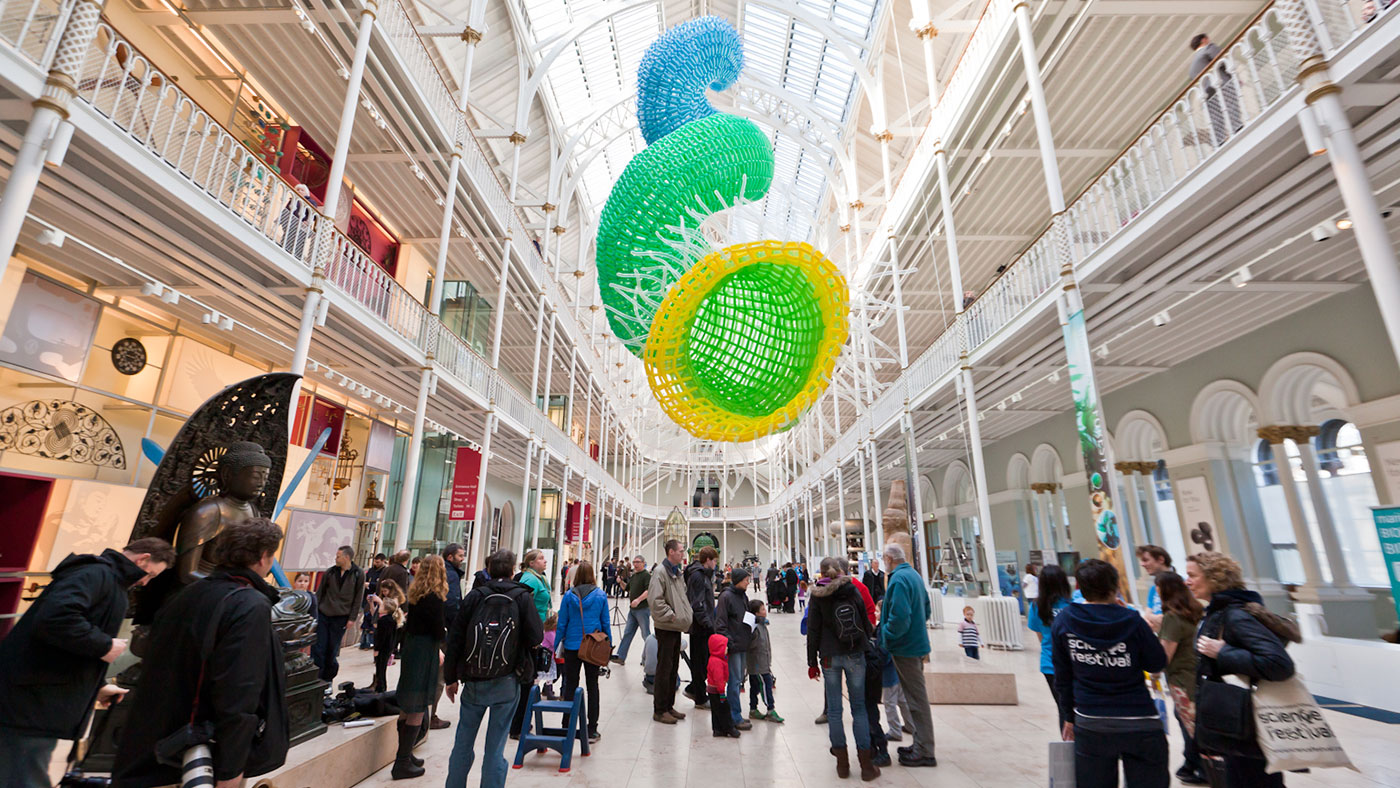What to see at the Edinburgh International Science Festival
From the exceptional women of astronomy to understanding cheese, we explore the best bits of this annual celebration

A free daily email with the biggest news stories of the day – and the best features from TheWeek.com
You are now subscribed
Your newsletter sign-up was successful
One of the largest science festivals in Europe, the Edinburgh International Science Festival has become an essential date on the cultural calendar. Held in locations across the Scottish capital, the festival invites both adults and children to participate in workshops, discussions and exhibitions revolving around the broad world of science. Here, we take a look at some of the highlights to look forward to.
A Celebration of Women in Astronomy
Like many scientific disciplines, the field of astronomy has historically been a male-dominated profession. Redressing the balance is Professor Dame Jocelyn Bell Burnell, the first female president of the Royal Society of Edinburgh and renowned for her discovery of pulsars. In this discussion she will be telling the stories of the remarkable women – past and present – who have made crucial contributions to the field, and discussing the position of women in astronomy today.
The Week
Escape your echo chamber. Get the facts behind the news, plus analysis from multiple perspectives.

Sign up for The Week's Free Newsletters
From our morning news briefing to a weekly Good News Newsletter, get the best of The Week delivered directly to your inbox.
From our morning news briefing to a weekly Good News Newsletter, get the best of The Week delivered directly to your inbox.
8-9pm on 11 April at Dissection Room, Summerhall
Cheeseology 3.0
After leading well-received shows in the past two years, dairy technologist Paul Thomas is joined by food journalist and cheese writer Patrick McGuigan for his third appearance at the Edinburgh Science Festival. The dairy duo will explore the science behind flavour and texture development, manufacture and ripening, all the while breaking down technical processes in terms that those without a background in the field will also understand. This event is also accompanied by a treat for the senses, as not only will Thomas and McGuigan provide an opportunity to learn about an interesting niche topic, but the audience will also have the chance to sample some of the cheeses, which demonstrate the influences that various elements have on the end product.
8-9:30pm on 4 April at Dissection Room, Summerhall
A free daily email with the biggest news stories of the day – and the best features from TheWeek.com
Generation Webb
Since its launch in 1990, the Hubble Space Telescope has become a household name in the realm of space exploration. Due to launch in 2019, the James Webb Space Telescope will be NASA's primary observatory of the next decade. A new kind of space telescope set to serve astronomers worldwide and built for a new generation of great thinkers, we have yet to see the impact of this new feat of technology. Join astronomers Dr Marek Kukula and Professor Gillian Wright, along with other prominent names in the field, in discussing the ways in which it could usher in a change in how we view the world and its surroundings.
8-9:30pm on 10 April at the National Museum of Scotland
Tam Dalyell Prize Lecture
Each year, the Tam Dalyell Prize for Excellence in Engaging the Public with Science is awarded to a team making an outstanding contribution at The University of Edinburgh. In 2018, Dr Niki Vermeulen, Dr Bill Jenkins and their team will open up discussion around their project Curious Edinburgh, a virtual walking tour of the capital that examines its place in the history of science, technology and medicine. Including tasters of existing tours and presenting new plans, this one-off discussion will examine ways it plans to engage with local communities, as well as showcasing Edinburgh's international connections.
6-7:30pm on 15 April at Playfair Library
The Paris Agreement: Today and Tomorrow
The Paris climate agreement was drawn up at the end of 2015 in an attempt to join nations across the world in combatting the largest contributors of climate change. The UK joined the efforts in 2016, becoming the 111th country to pledge to make a change, aiming to limit temperature increase and strengthen the ability of countries to deal with the impacts of climate change. Last year, under President Trump, the USA backed out of the effort, although many American states, cities and business have stood up and taken it upon themselves to adopt the goals of the Paris Agreement. Former chief scientist of the Met Office, Dame Julia Slingo, and environmental journalist Louise Grey will be joined by a medical doctor and an investment expert in discussing the topic. Together they will explore whether the goals can be achieved, and what this could mean for each of our lives in the UK, as well as its impact on future generations.
3-4:30pm on 7 April at the National Museum of Scotland